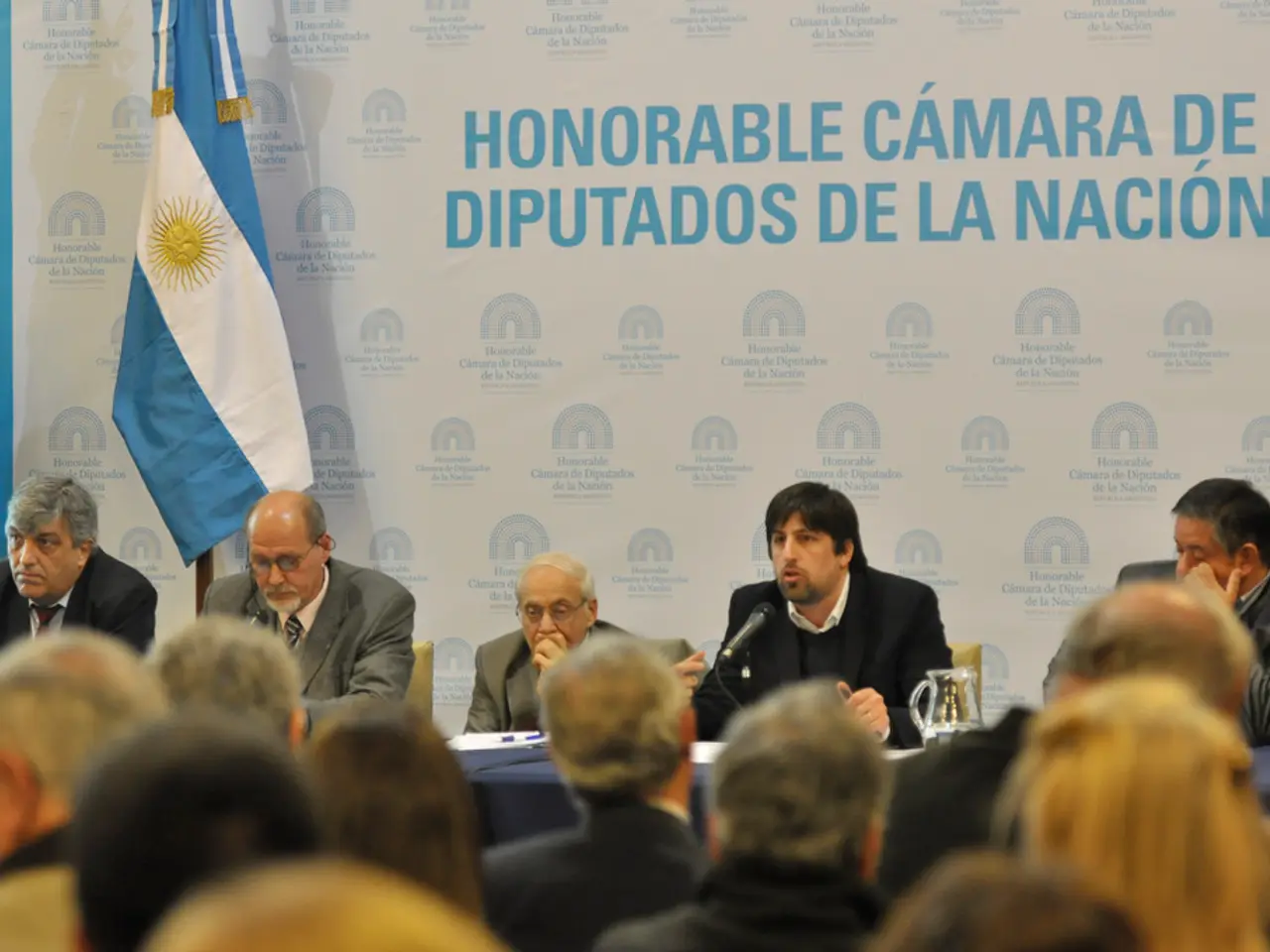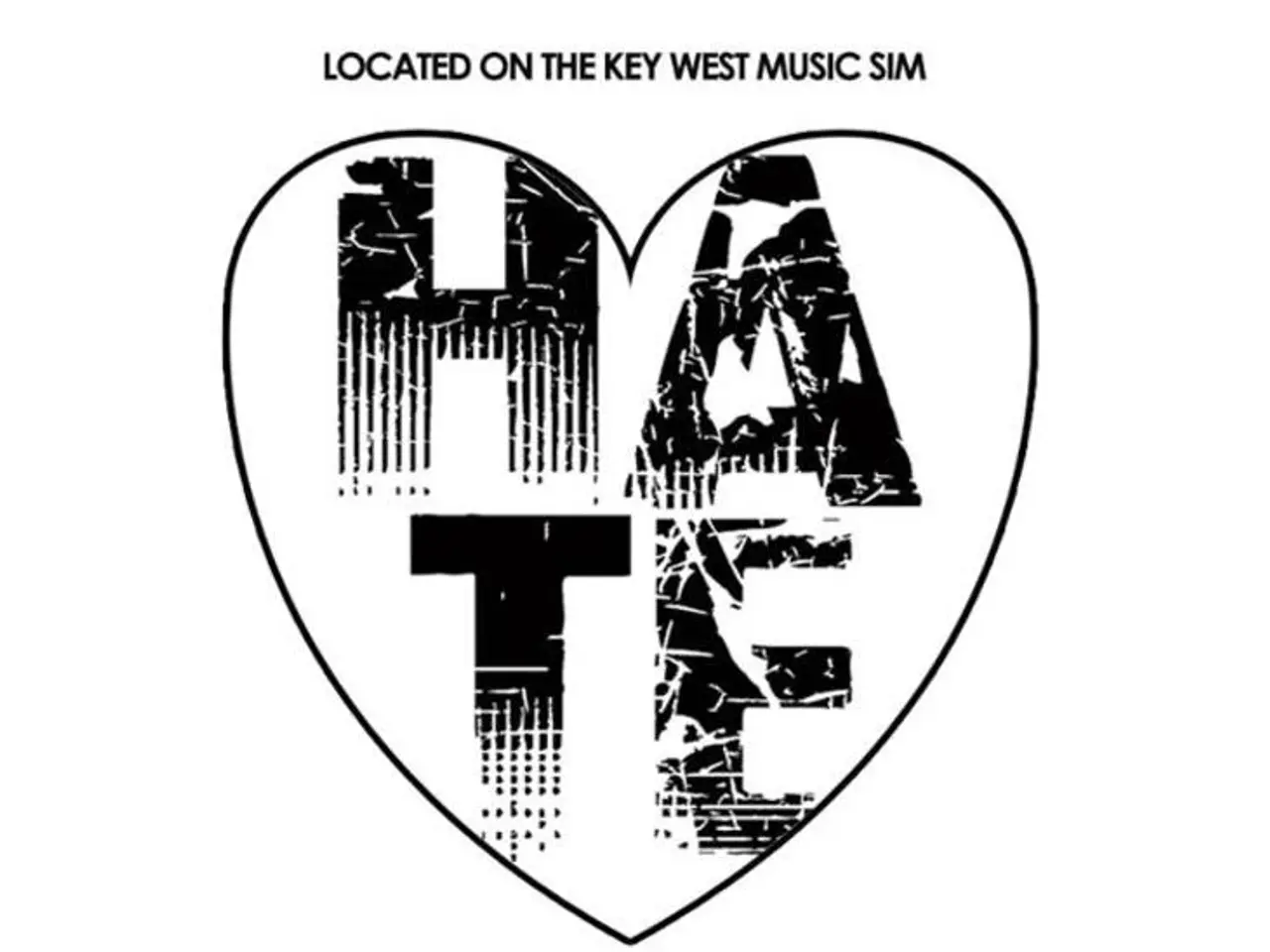Appeal for an Immediate, Bipartisan Committee Against Misinformation Propagation
In the face of a growing crisis of misinformation undermining trust in key institutions, a bipartisan effort to combat disinformation in the United States is gaining momentum. The Aspen Institute's Commission on Information Disorder, a prominent initiative launched to identify and prioritise the main sources and causes of disinformation, is at the forefront of this movement.
The commission, staffed with notable public figures such as journalist Katie Couric, cybersecurity expert Chris Krebs, and racial equity advocate Rashad Robinson, has been actively soliciting input from a wide range of stakeholders and experts since at least 2021. As a result, the commission published a report with recommendations on July 11, 2025, marking a significant milestone in their ongoing work.
The overarching aim is to create a comprehensive framework that addresses disinformation in ways that balance regulatory concerns, technology platform responsibilities, and the safeguarding of democratic discourse. While there may not be a formal congressional commission active at present, the Aspen Institute's commission effectively embodies a leading platform for studying and advancing solutions against disinformation in the U.S.
Meanwhile, the legislative response to disinformation has been underwhelming. Important initiatives like the Promoting Public Health Information Act and the COVID-19 Disinformation Research and Reporting Act of 2021 failed to pass. However, discussions and activities about confronting disinformation continue at various governmental levels, including Senate committee reports and international dialogues, emphasising the bipartisan recognition of this issue's seriousness.
One such attempt was the Disinformation Governance Board established by the Department of Homeland Security (DHS) in 2022. Despite its best intentions, the board faced numerous challenges and was suspended after just three weeks, with its leader resigning soon after.
Despite these setbacks, public support for governmental action to restrict false information remains high. A recent survey shows that 48 percent of Americans advocate for such action, a notable increase from 39 percent in 2018. High-profile incidents, such as the Rohingya crisis in Myanmar and the anti-balaka violence in the Central African Republic, have been fuelled by misleading narratives spread via social media, underscoring the need for effective measures against disinformation.
Addressing disinformation in the modern era demands a multifaceted strategy, including education, collaboration, regulatory measures, and technological innovation. A 2022 report reveals that a majority of Americans view disinformation as a more critical issue than a range of threats, including infectious diseases, terrorism, and climate change.
Partisan divides exist in attitudes toward addressing disinformation. While 70 percent of Republicans emphasise the importance of information freedom, 65 percent of Democrats support governmental intervention in curbing misinformation. A recent Pew Research Center survey shows a significant shift in American attitudes toward online false information, with a growing call for both government and technology companies to play a role in addressing disinformation.
During the 117th congressional session, Congress introduced 199 bills targeting disinformation but only enacted five, with most focusing on foreign disinformation and falling short in addressing domestic disinformation. Disinformation has emerged as a significant threat to democracy and national security, with 76 percent of Americans perceiving domestic political instability as a more critical danger than the threat posed by foreign adversaries.
The national security implications of disinformation include the potential manipulation of US policy and the spillover of societal division into the military sphere. Russia and Iran conducted disinformation campaigns during the 2020 US elections to undermine public trust in US institutions, erode confidence in the democratic process, and intensify political divisions within the United States.
A new bipartisan commission could be formed to thoroughly investigate the nuances of disinformation campaigns, similar to the Warren Commission and 9/11 Commission. As the Aspen Institute's Commission on Information Disorder continues its work, the need for a comprehensive, balanced approach to combating disinformation becomes increasingly apparent.
- The Aspen Institute's Commission on Information Disorder, composed of notable figures like Katie Couric, Chris Krebs, and Rashad Robinson, is actively seeking input from various stakeholders and experts to combat disinformation.
- In a recent survey, 48 percent of Americans support governmental action to restrict false information, a notable increase from 39 percent in 2018.
- The national security implications of disinformation include the potential manipulation of U.S. policy and the spillover of societal division into the military sphere.
- During the 117th congressional session, 199 bills targeting disinformation were introduced, but only five were enacted, with most focusing on foreign disinformation and falling short in addressing domestic disinformation.
- Russia and Iran conducted disinformation campaigns during the 2020 U.S. elections to undermine public trust in U.S. institutions, erode confidence in the democratic process, and intensify political divisions within the United States.
- A new bipartisan commission could be formed to investigate the intricacies of disinformation campaigns, similar to the Warren Commission and 9/11 Commission, and the need for a comprehensive, balanced approach to combating disinformation becomes increasingly apparent.








